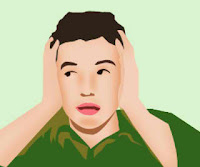Depressed Aspergers/HFA Teens and Drug/Alcohol Abuse
 Parents often assume that their teenager with Asperger's (AS) or High-Functioning Autism (HFA) tries alcohol and/or drugs to rebel or to "fit in" with his peer group. However, teens with undiagnosed depression often use drugs and alcohol as a way to relieve their frustrations. A depressed teen on the autism spectrum may self-medicate with alcohol to escape the terrible sense of hopelessness. Unfortunately, alcohol only exacerbates the problem.
Parents often assume that their teenager with Asperger's (AS) or High-Functioning Autism (HFA) tries alcohol and/or drugs to rebel or to "fit in" with his peer group. However, teens with undiagnosed depression often use drugs and alcohol as a way to relieve their frustrations. A depressed teen on the autism spectrum may self-medicate with alcohol to escape the terrible sense of hopelessness. Unfortunately, alcohol only exacerbates the problem.Some drugs may even make him feel "normal," when for weeks he has felt miserable. The impact of such drugs on serotonin, dopamine and endorphins (i.e., chemicals in the brain that regulate mood) can be devastating for these teenagers. The damage they do to receptors in the brain can make the road back from depression even harder.
Often parents approach the issue of drug and alcohol use as simply a discipline issue for a teen who is "bad." However, your "special needs" teen may be sick. He may be unable to express to you exactly how he feels. If your adolescent is self-medicating to treat depression, anxiety, or other emotional or behavioral disorders, simply applying more discipline and creating more rules will not impact the underlying problem that led to substance abuse in the first place.
While some teens on the spectrum self-medicate to treat depression, others end up with a serious mental disorder due to abuse of drugs or alcohol. Abusive drinking or drug use can seriously undermine your teen's physical, emotional, and psychological health. Some drugs, such as methamphetamines, can seriously affect the neurotransmitters, which are known as the "messengers of the brain." Recent studies suggest this damage can be long-lasting and even permanent.
Many AS and HFA teens have the mistaken notion that club drugs are benign. In fact, while they might feel "good" while taking them, they can make it difficult for the teenager to feel good naturally for a long time to come. The longer teens use these drugs, the more difficult treatment and the higher rate of relapse due to their inability to "feel good" or even "normal" because of the damage to their neurotransmitters.
Many AS and HFA teens have the mistaken notion that club drugs are benign. In fact, while they might feel "good" while taking them, they can make it difficult for the teenager to feel good naturally for a long time to come. The longer teens use these drugs, the more difficult treatment and the higher rate of relapse due to their inability to "feel good" or even "normal" because of the damage to their neurotransmitters.
Is your teen depressed? Answer these questions to find out:
1. Does your teen have little interest in his future?
2. Does your teen drink alcohol?
3. Does your teen smoke cigarettes?
4. Does your teen use drugs?
5. Has your teen quit activities he used to enjoy?
6. Does your teen seem to cry easily?
7. Does your teen seem like he is filled with guilt and remorse?
8. Has your teen been denying food saying he is not hungry?
9. Has your teen been easily agitated?
10. Has your teen been having a difficult time making decisions?
11. Has your teen seemed to have lost his energy?
12. Has your teen withdrawn from you or other family members?
13. Has your teen had recurrent thoughts of death or suicide?
14. Has your teen been falling asleep in class?
15. Has your teen felt hopeless?
16. Has your teen had problems sleeping at night?
17. Has your teen not been focused on what is going on in front of him, and is he often lost in his own thoughts?
18. Has your teen had a dramatic change in personality such as extreme irritability or sadness?
19. Has your teen had a hard time focusing on homework or reading?
20. Has your teen had an overwhelming feeling of sadness for no known reason?
21. Has your teen often feel fatigued, even when he has gotten enough rest?
22. Has your teen spent too much time in his room alone?
23. Has your teen withdrawn from his friends?
24. Has your teenager been over-eating?
25. Have you heard your teen put himself down, making derogatory comments and being overly critical?
If you answered yes to 5 or more of these, then your teen is likely suffering with depression.
AS and HFA teenagers have a difficult time relating their true feelings to others. The world is quite different today, and these young people face so many obstacles. If your teenager becomes withdrawn and disinterested, it is critical that you intervene in an attempt to see what the trouble may be. Many times a teen will open up to a close friend or family member that they are able to trust. Once a teen gains a comfort level, they will pretty much open up about anything.
Recognizing teen depression can be difficult at times, but it is important to intervene in an attempt to save a life. Teen suicide among teens wth an autism spectrum disorder is nothing new. Sometimes just talking things out will help the teenager immensely. However, sometimes it may take more than just a one on one conversation. In severe cases, the teen may benefit from psychological counseling with a professional.
==> Help for Parents of Teens on the Autism Spectrum


